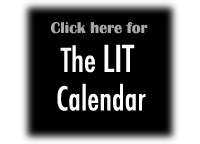Ned Balbo and Jane Satterfield are the feature writers at the May Wilde Readings, a monthly community open mic supported by HoCoPoLitSo. Join Ned and Jane as well as other open mic readers for a free, virtual reading on Tuesday, May 11th at 7:00 pm. Register here. Get to know Ned and Jane with our Six Questions.
Q: Who is the person in your life (past or present) that shows up most often in your writing?
Ned: I haven’t counted, but Betty & Carmine, my adoptive parents, have racked up quite a few appearances… as have my birth parents, Elaine (Betty’s much-younger sister) & her belated husband Don.
Jane: It would be interesting to take an inventory… my parents (and their parents) show up in my recent book, Apocalypse Mix, in the context of poems about war’s generational impact on soldiers and civilians, and I’m pretty sure that the presence of other women writers and artists—present and past—is strong.
Q: Where is your favorite place to write?
Ned: My home office where files, books, knick-knacks, Golden Guides, drafts & memorabilia are all in easy reach & my lap is available to Wyatt, our affectionate polydactyl cat.
Jane: My second-floor study has plenty of books within reach; I work near a window that offers the welcome distractions of suburban wildlife—the crows, foxes, squirrels, and assorted birds that sometimes make their way into poems.
Q: Do you have consistent pre-writing rituals?
Ned: Nothing consistent. Sometimes I wander the Internet: musing on pop culture trivia that’s crossed my path while thinking about the poem I’m working on, or gathering background information in PDF form for research purposes. Lately, if I’m in the mood for music, I’ll call up Eno via iTunes (Ambient 1, Harold Budd collaborations, Thursday Afternoon, Neroli, Compact Forest Proposal), Sufjan Stevens’ Planetarium, or maybe Andrew Bird’s Echolocations.
Jane: Music and meditation are often helpful, but I don’t have any consistent pre-writing routines. I am, however, a notebook fanatic—I like to collect images, ideas, research notes, opening lines so I never have to face a blank page.
Q: Who always gets the first read?
Ned: Jane. She has a way of just asking questions gently that point me in the right direction if a poem isn’t quite right. I also listen for the degree of enthusiasm she conveys in her always supportive way. If it’s less than I’d like, I know I have more work to do.
Jane: Ned. He has a perfect ear for the soundscape of a poem and asks all the right questions that encourage me to return to the page. I’m lucky beyond belief that his listening also turns my attention to subjects I’ve overlooked, written off, or avoided…
Q: What is a book you’ve read twice and would read again?
Ned: Prose – Jane Austen, Mansfield Park; Zora Neale Hurston, Their Eyes Were Watching God. Poetry – Denis Johnson, The Incognito Lounge; Elizabeth Spires, Globe; Andrew Hudgins, Saints & Strangers; Tracy K. Smith, Life on Mars.
Jane: I’ve cracked the spine of copies of Plath’s Ariel, Shapcott’s Her Book, and Levis’ Winter Stars. I’ll probably do the same with recent favorites like Erika Meitner’s Holy Moly Carry Me and Aimee Nezhukumatathil’s Oceanic. I’ve revisited Michael Ondaatje’s The English Patient and Virginia Woolf’s Mrs. Dalloway more summers than I can count.
Q: What is the most memorable reading you’ve attended?
Ned: A.E. Stallings at Loyola University Maryland in 2019: not only was she gracious & her poems brilliant but she shared extensive footage, photos & anecdotes on her work in support of Syrian refugee families who’ve fled to Athens, Greece (where Stallings lives) – their children especially, whose poems & artwork reflect both hardship & hope.
Jane: I attended a Simon Armitage reading in a pub in Huddersfield back in 1994 that had all the fabulous energy of a football match — Armitage recited his poems and, since Huddersfield is his hometown, there was a palpable sense of poetry’s connection to the community. Several years ago, I hosted Paisley Rekdal in Loyola’s Modern Masters Series the day Guggenheim winners were announced. Paisley read a sequence of Mae West poems that would later appear in Imaginary Vessels — an amazing mini-seminar in the sonnet.






